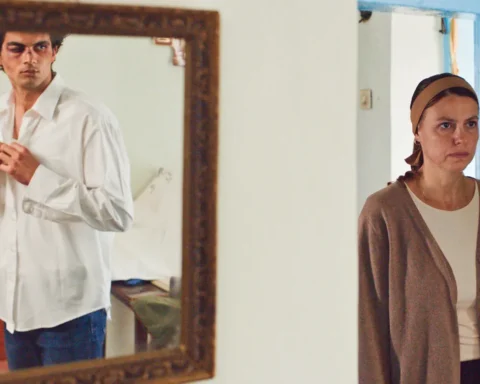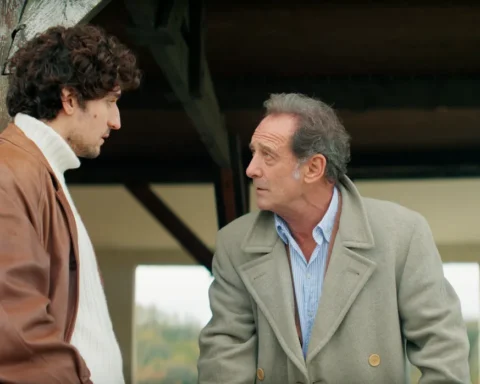Les filles d’Olfa (2023)
“Starting with clichés is better than ending up in clichés” concluded Kaouther Ben Hania’s conversation at IFFR with Hitchcock’s words. One motivation for making Four Daughters was the choice to confront stereotypes rather than avoiding them.
The film on the story of Olfa, a Tunisian woman, and her four daughters. It’s the powerful portrayal of five women who questions, rejects, fights, and rebels in a society dominated by patriarchy. Notably, men in the film are depicted as passive, cynical, and powerless, challenging stereotypes. An interesting meta-touch occurs when actors playing Olfa’s husband and subsequent lover refuse to be part of violent scenes, stepping out of the frame.
Ben Hania’s hybrid documentary combines interviews, reenactments, fiction, and news footage, successfully creating an emotional backdrop while intertwining front and back-of-camera narratives. The director explains her preference for the film’s meta-form: “I initially wanted to make a regular documentary, but due to the complex nature of the story, it required a more layered format to truly reflect its strength.”
Mirrors, doors, frames, reflections; scene almost dominated by a black cloud… The impact of Four Daughters is owed to its strong cinematography and as well sincerity. While the narrative occasionally leans towards melodrama, the director’s intention is not to focus on tragedy. Unexpectedly, the film adds humor to its most touching moments, keeping the audience on their toes (without giving away spoilers, the wedding night scene was one of the highlights).
Geography often becomes destiny, and the film explores this concept. While the story acknowledges the influence of the society we are born into on our future, it also introduces limited interventions in fate within the narrative. The director illustrates how Olfa’s choices, shaped by societal preconceptions, occasionally defy or conform to norms, affecting the course of the story. The film confronts Olfa, portraying her as both a hero and an anti-hero. The story serves as a microcosm, transitioning from family to society and taking the audience on a journey through Tunisia’s recent history.
Four Daughters, with its technical prowess, sincerity, and courage, received acclaim in Rotterdam after starting its journey in Cannes. The film is powerful enough to challenge Western audiences and offer a new perspective by confronting biases.
Where did I see it: International Rotterdam Film Festival (Dutch Premiere)
Nil Birinci






